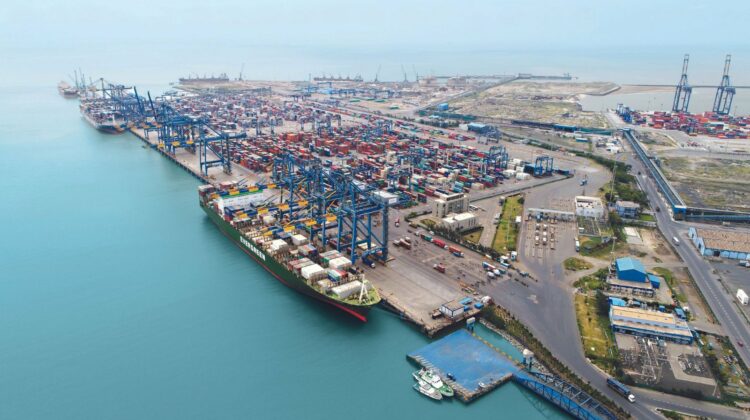
Government aims to cut red tape and accelerate port infrastructure development
NEW DELHI : Govt mulls greater autonomy for major ports to boost efficiency and reduce bureaucratic delays. In its drive to transform state-owned ports into self-reliant commercial hubs, the Ministry of Ports, Shipping, and Waterways is exploring plans to enhance decision-making autonomy for India’s 12 major ports, officials close to the matter revealed.
A key proposal under review would empower these ports to independently manage their capital expenditure (capex), provided it is financed through internal resources. This shift aims to deepen the corporatisation of major ports, reducing bureaucratic dependency and fostering operational efficiency.
“This initiative could unlock greater flexibility and efficiency in port management,” a senior government official noted. “By allowing ports to leverage their resources, we can streamline infrastructure development and meet evolving trade demands more effectively.
Over 10,000 steel user units are facing a crisis due to prolonged port delays and burdensome regulatory requirements, and the government should look at streamlining import processes and digitise systems to help the sector, think tank GTRI said on Monday. The Global Trade Research Initiative (GTRI) also said that policies aimed at protecting domestic steelmakers, including import restrictions and quality control measures, have unintentionally penalised industries dependent on imported steel.
Over 10,000 units are struggling with operational and financial challenges, threatening their production and export capabilities, it added. It also said that Free Trade Agreements (FTAs) need careful scrutiny as some FTAs allow Indian firms to partner with foreign producers and re-import steel at concessional rates, raising concerns about competition. “Port delays and red tape are choking India’s steel user industries. Over 10,000 steel user units face financial strain due to delays at ports and unclear regulatory requirements. Essential imports for manufacturing industries face excessive scrutiny,” GTRI Founder Ajay Srivastava said.
To monitor imports, the government introduced the Steel Import Monitoring System (SIMS), requiring detailed declarations before goods arrive. Additionally, Quality Control Orders (QCOs) mandate registration with the Bureau of Indian Standards (BIS) for specific steel products. However, he said, Customs has extended these requirements indiscriminately, demanding BIS No Objection Certificates (NOCs) even for items outside the QCO’s scope.
“This creates confusion, delays, and added costs, as BIS rarely issues NOCs promptly. Compounding the problem, the Steel Ministry’s Steel Import Monitoring System (SIMS) for registering consignments often malfunctions, further delaying clearances,” Srivastava said. India’s steel user industry urged the government to ensure clear, transparent, and efficient processes. If import restrictions are necessary, the GTRI said, they should be implemented through well-defined policies rather than procedural roadblocks.
To ensure the growth and competitiveness of both steelmakers and steel user industries, the government should take steps such as streamlining import processes, digitizing systems, and focusing on the domestic production of high-quality specialty steel are critical. “Without these measures, policy-induced bottlenecks could harm the broader economy and undermine India’s aspirations for global manufacturing leadership,” the think tank said, adding QCOs should be mandatory only for steel made domestically in sufficient quantities and there is a need to revamp SIMS.
India’s steel industry can be divided into two categories — steelmaking firms and steel-user industries. The user industries use steel to create value-added products like flat and long steel items, specialty steel, stainless steel, and fabricated component

